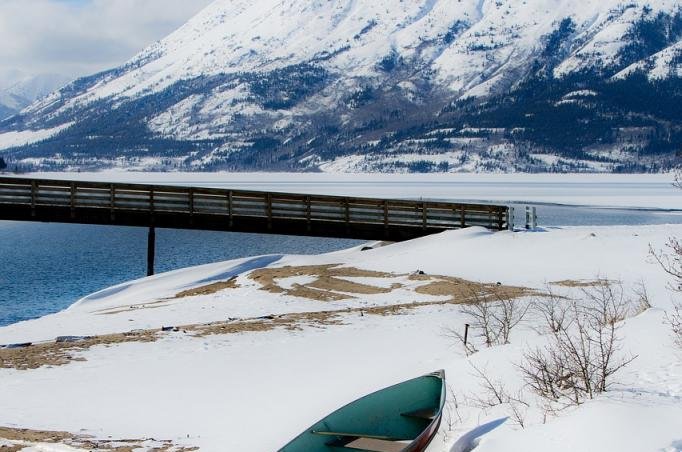An oil spill in the Arctic could be devastating to indigenous people, as well as the environment, according to new research. Photo by
steveowst/Pixabay
July 7 (UPI) -- As a result of human-caused climate change, sea ice throughout the Arctic has rapidly disappeared, opening new waters to shipping, and sparking interest in oil and gas exploration.
The Canadian-United States moratorium on oil and gas exploration in the Arctic is likely to remain in place for the foreseeable future.
Still, researchers worry that as shipping traffic increases, so will the risk of an accident involving an oil tanker like the Exxon Valdez, which ran aground in Prince William Sound in 1989, spilling more than 11 million gallons of oil into the Gulf of Alaska.
To help policy makers gauge and prepare for said risk, researchers in Canada developed a risk assessment model -- described Wednesday in the journal Risk Analysis -- to simulate the impacts of an oil spill in the region.
"Should there be an accident by a tanker like the Exxon Valdez, the consequences could be devastating," lead author Mawuli Afenyo, researcher at the University of Manitoba and an expert on the risks of Arctic shipping, told UPI in an email.
To build their model, researchers combined Bayesian statistical analysis and artificial intelligence. The model uses both quantitative and qualitative data, and considers both environmental and social parameters.
"Information about seasons, wind and temperature have all been included," Afenyo said. "The accident data in this region was also accounted for. The hunting patterns and economic activities of the populations are also included. The results show the impact of an oil spill in dollar terms when it happens."
When scientists simulated oil spills with immediate interventions, Afenyo and his colleagues were surprised to find how quickly the damage totals in dollars increased over short periods of time.
Given the lack of infrastructure in the region, researchers warn that an emergency response to any kind of oil spill in the Arctic would be extremely difficult and slow to materialize.
"Also, the study shows that oil spills do have social impacts and this needs to be taken very seriously, as it affects family dynamics and culture of a vulnerable region," Afenyo said. "What surprised us from this study is how oil spill impacts the culture, hunting and other ways of life of the indigenous communities."
The researchers said they hope their work will help governments and policy makers make more informed regulatory decisions.
The risk assessment model could also help insurance companies make more accurate decisions about liability when insuring shipping vessels and journeys, they said.
"Based on this study, policy makers can have a justification to enact laws in the best way to manage Arctic resources and increase funding for climate change research," Afenyo said. "Policies related to how the Arctic should be protected would benefit from this."















